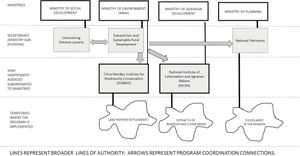The German Constitutional Court has delivered a landmark ruling concerning police costs related to high-risk football matches. This decision, reached after more than ten years of dispute, mandates organizers of such events to cover the additional police deployment costs. This ruling primarily affects Bundesliga clubs and signals significant changes for their financial planning.
Located in Karlsruhe, the court confirmed the law passed by the Bremen government allowing cities to charge event organizers for police services during high-risk games. The Deutsche Fußball Liga GmbH (DFL), which had been challenging this law, found itself on the losing end of the ruling. The DFL argued it is the state's responsibility to maintain public order during football matches, claiming these costs should be borne by taxpayers rather than event organizers.
According to the court's president, Stephan Harbarth, "The organizers are objectively beneficiaries of this provision of police forces." This sentiment reinforces the idea put forth by the Bremen government since it amended its Fee and Contribution Act back in 2014. The amendment stated organizers must pay for police deployments during events anticipated to attract violence or unrest, regardless of the type of event—be it sports or concerts.
The law required significant changes after Bremen started billing any club hosting high-risk matches, which resulted in over three million euros charged to Werder Bremen alone. DFL officials felt this represented unfair treatment as they believed policing should be state-funded, particularly outside of stadium environments, where police are expected to maintain order.
Following the court's decision, conversations among various stakeholders intensified. Interior Minister Herbert Reul from North Rhine-Westphalia (NRW) asserted, "Police deployments should not come with a price tag." He emphasized maintaining public order as the state's promise to its citizens. Nonetheless, there is division among the states, with some demonstrating openness to engage clubs financially with police deployments, and others, like NRW, firmly declining.
Several Interior Ministers from states such as Hamburg and Rheinland-Pfalz have indicated they would like to see the establishment of a national fund. Ulrich Mäurer, Bremen's Interior Senator, has been vocal about the need for Bundesliga clubs to contribute to this fund, emphasizing the fairness of shared costs. This would prevent scenarios where responsibility falls disproportionately on specific clubs, particularly clubs experiencing higher incidents of crowd trouble.
Tarek Brauer, managing director of Werder Bremen, has labeled the situation as creating competitive distortion. He stated, "I expect constructive discussion leading to fair distribution of costs rather than leaving Werder Bremen to shoulder the burden alone." The DFL's resistance to this financing structure could have broader ramifications, as other states may now be more inclined to impose similar fees to recover policing expenditures from event organizers.
This ruling implies not only financial consequences for the Bundesliga but also raises questions about the classification of matches deemed 'high-risk.' With various officials entering discussions about this classification system, some observers suggest it should be re-evaluated to avoid unnecessary financial strain on clubs with minimal issues with fan-related violence.
Despite the legal ruling, the DFL remains cautious, stating they will require time to analyze the court's findings. The potential for subsequent charges from various states creates urgency for clubs to reassess their strategies concerning fan engagement, safety measures, and overall event management.
Meanwhile, collaborations between police, municipalities, and clubs are being promoted to create safer environments during matches, where they can address public safety proactively rather than reactively having to deal with financial repercussions. Interior Ministers across regions are discussing ways to work together toward this end.
The Berlin Interior Minister, Iris Spranger, has maintained her initial refusal to charge clubs for police services. She reinforced the idea of public security being inherently the state's responsibility. Conversely, some regional leaders like those from Niedersachsen have indicated their openness to adopting similar legislation if violence persists at sporting events.
Moving forward, this high-stakes ruling highlights the need for proactive communication and collaboration among football clubs, authorities, and law enforcement, creating frameworks to appropriately manage costs and address public safety effectively. The Bundesliga and its clubs now face the task of responding constructively to these new challenges, ensuring positive outcomes for the future of German football.



